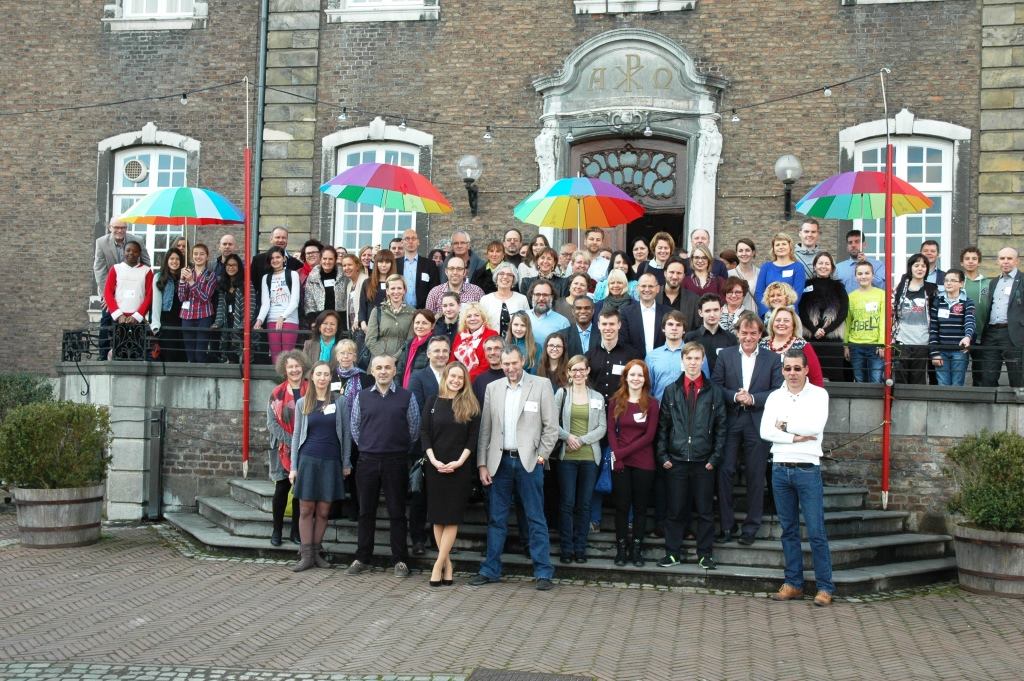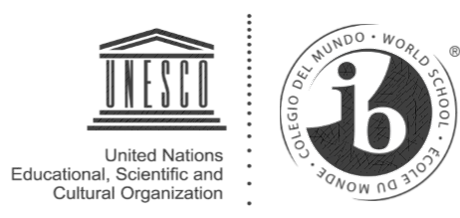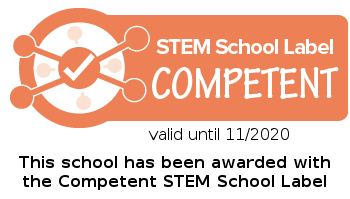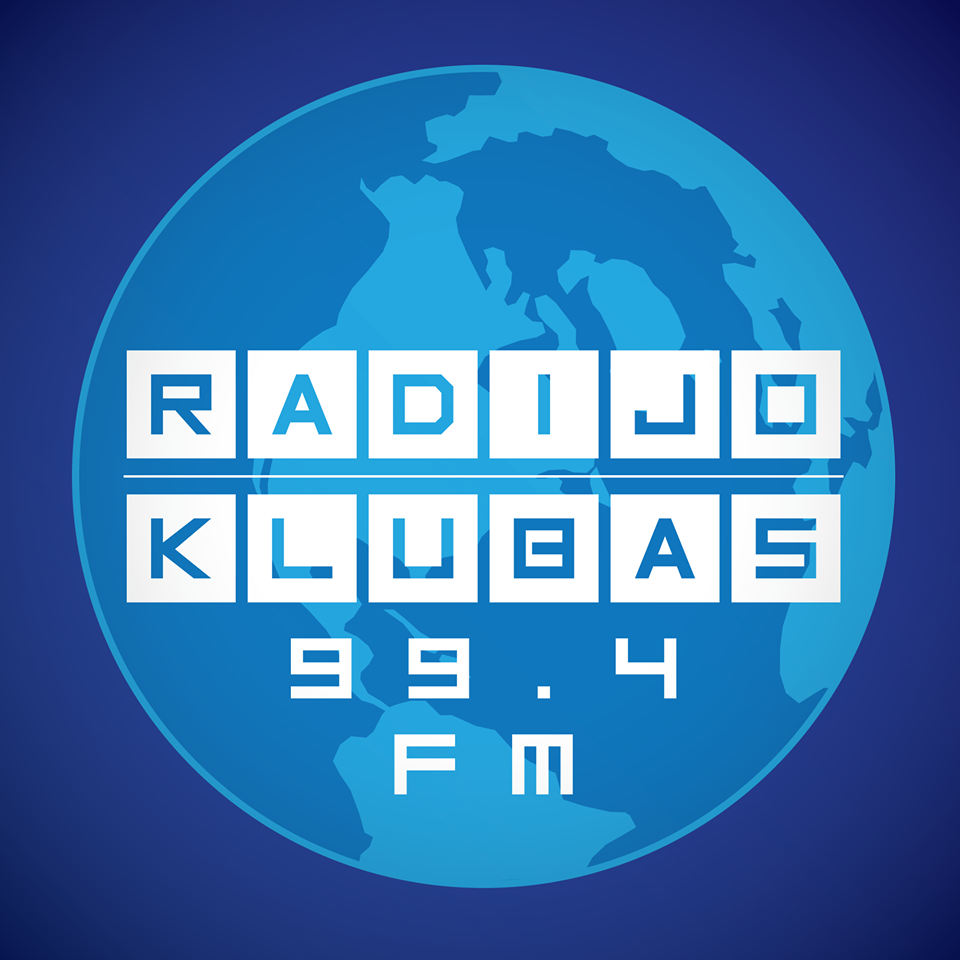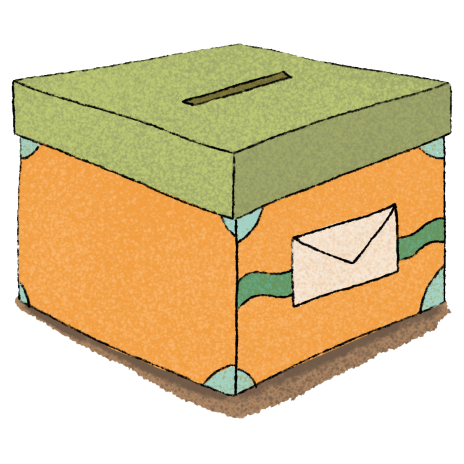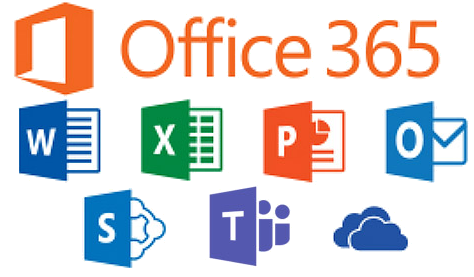The Opeduca project
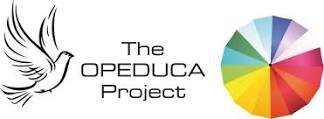 |
 |
2013-2015 m. pagal Mokymosi visą gyvenimą programą Didždvario gimnazija įgyvendina Comenius tinklų projektą "Developing OPenEDUCAtional regions for future-oriented learning and teaching Anytime, Anyplace, with Anybody, through Any device" (The OPEDUCA). Projekto The OPEDUCA metu mokyklos administracija, mokytojai bei universitetų mokslininkai siekia mokyklos pertvarkos bei švietimo plėtros (į ugdymo procesą įtraukiant savivaldybes, visuomenines institucijas bei verslo organizacijas). Projekto metu siekiama mokinių gebėjimus bei žinias paversti įgūdžiais ir kompetencijomis, ugdyti jaunimo verslumą ir skatinti vadovautis mokymosi visą gyvenimą strategijos principais (mokymosi veikla, vykstanti bet kuriame amžiaus tarpsnyje siekiant tobulinti asmeninės, pilietinės, socialinės ir profesinės srities kompetencijas).
Projekto svetainė:
http://www.opeduca.eu/
http://www.opeduca.eu/Activities.html

- I partnerių susitikimas vyko Graz Universitete (Austrija) 2013 m. spalio 30-31 d.
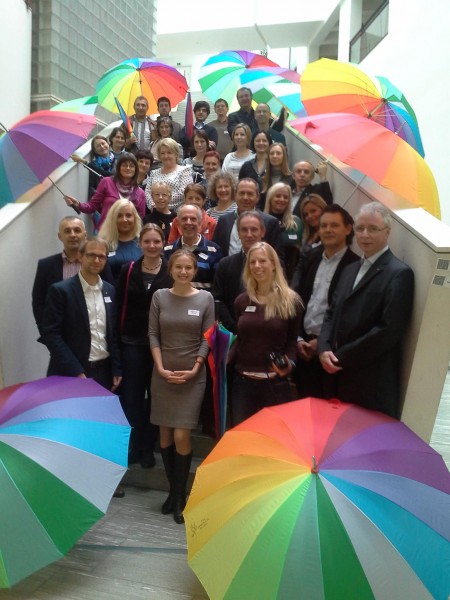
Projekto "The Opeduca" metu mokyklos administracija, mokytojai bei universitetų mokslininkai sieks mokyklos pertvarkos bei švietimo plėtros (į ugdymo procesą įtraukiant savivaldybes, visuomenines institucijas bei verslo organizacijas).
Bus siekiama mokinių gebėjimus bei žinias paversti įgūdžiais ir kompetencijomis, ugdyti jaunimo verslumą ir skatinti vadovautis mokymosi visą gyvenimą strategijos principais (mokymosi veikla, vykstanti bet kuriame amžiaus tarpsnyje siekiant tobulinti asmenines, socialinės ir profesinės srities kompetencijas).
Projekto veiklose 2014-2015 m.m. dalyvavo Šiaulių Didždvario gimnazijos IIb klasė. Mokiniai paruošė "minčių žemėlapius": maisto, vandens, energijos, pastatų ir kelionių temomis. Surengti susitikimai su ekspertais: architektų Viktoru Peršinu (Algimanto Černiausko architektūros studija "a&u"), Lietuvos gidų sąjungos ir Šiaulių gidų asociacijos nare Raimonda Pilipavičiene, įmonės "Geomina" savininku ir vadovu Mariumi Čegiu, AB "Šiaulių Energijos" Gamybos ir technikos skyriaus viršininku Remigijumi Šinkūnu.
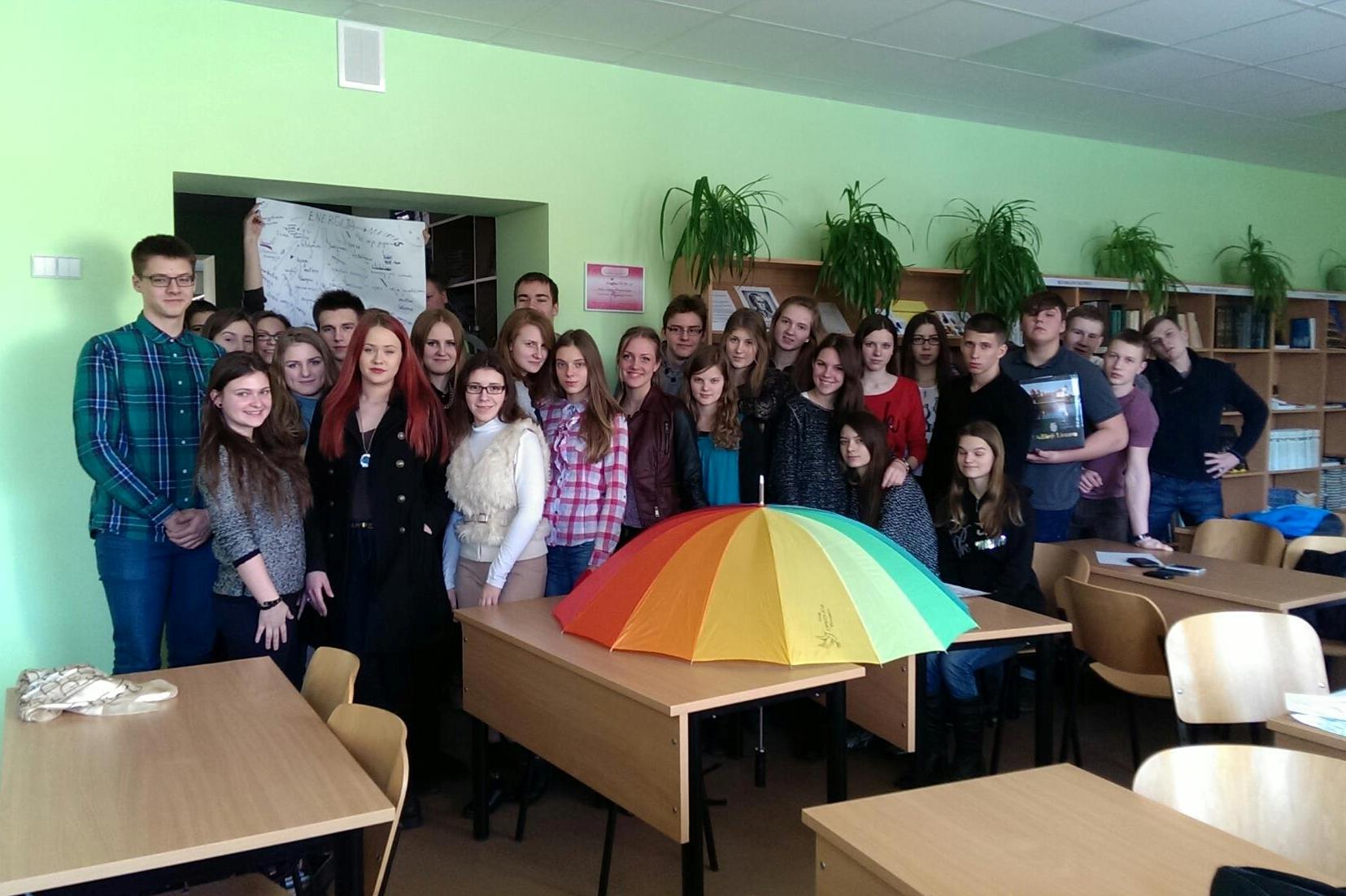 |
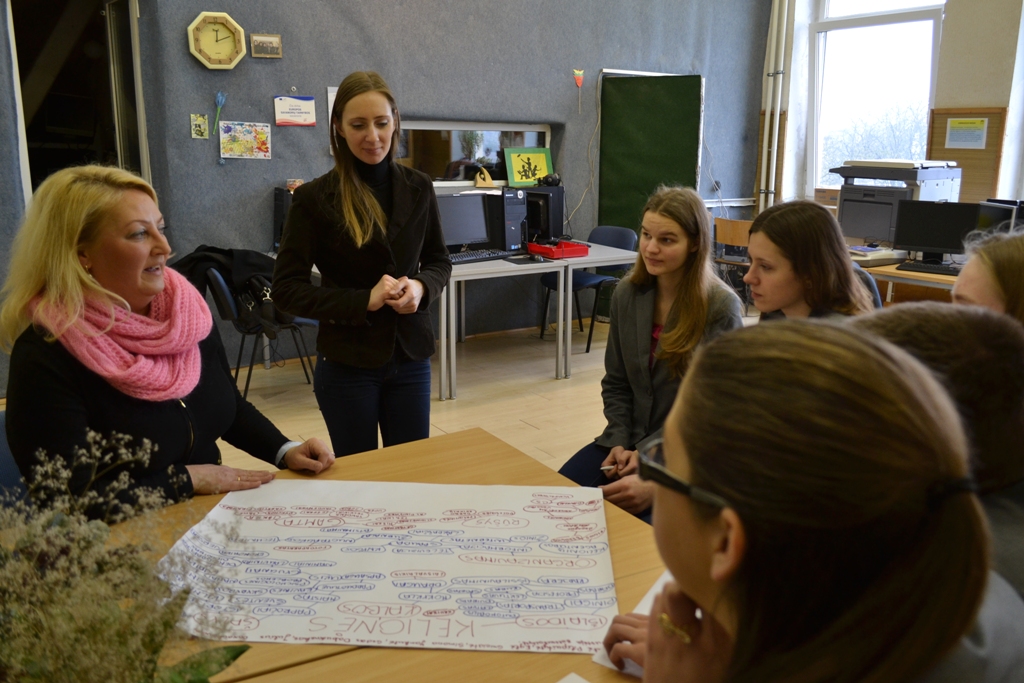 |
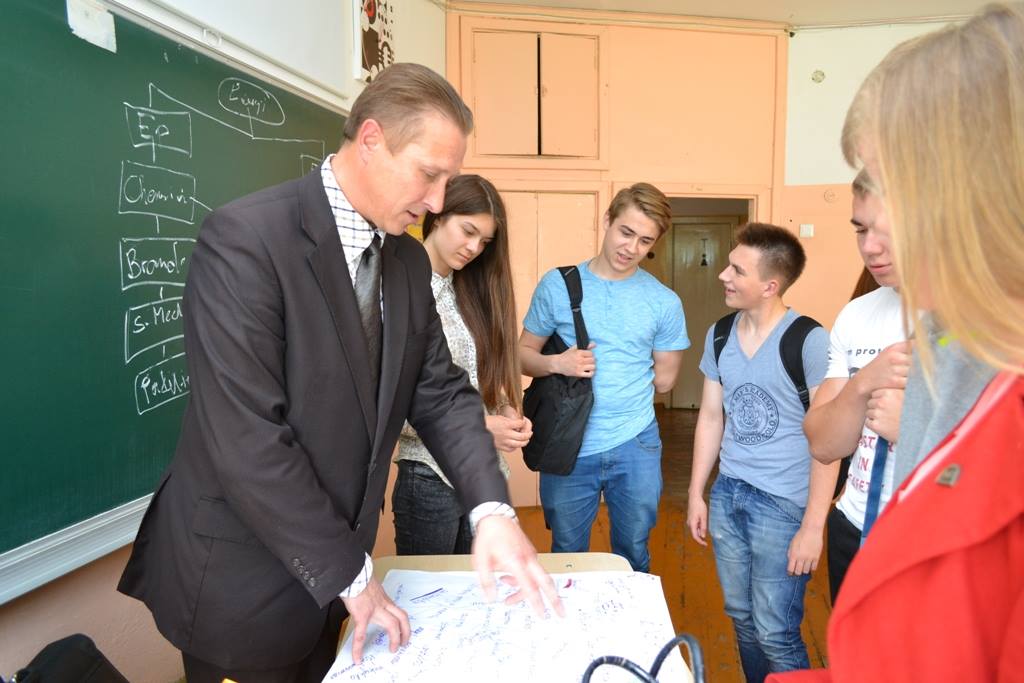 |
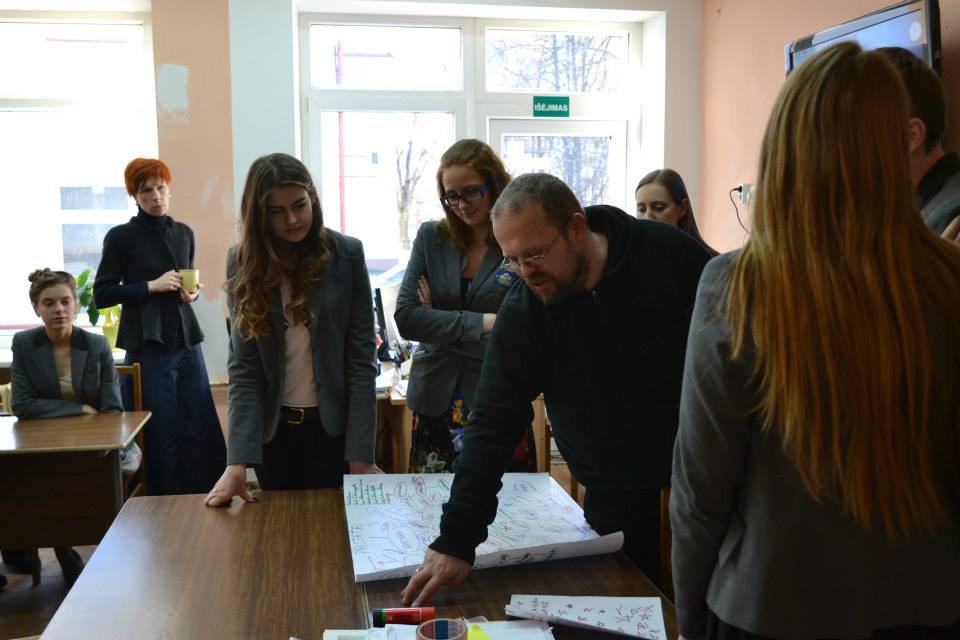 |
- II partnerių susitikimas vyko Gheorghe Sincai Theoretical Hight mokykloje (Zalau, Rumunija) 2014 m. birželio 3-4 d.
Šiaulių Didždvario gimnazijos nuveiktą darbą "Fligt for knowledge" etape pristatė klasių kuratorė Julija Muningienė.
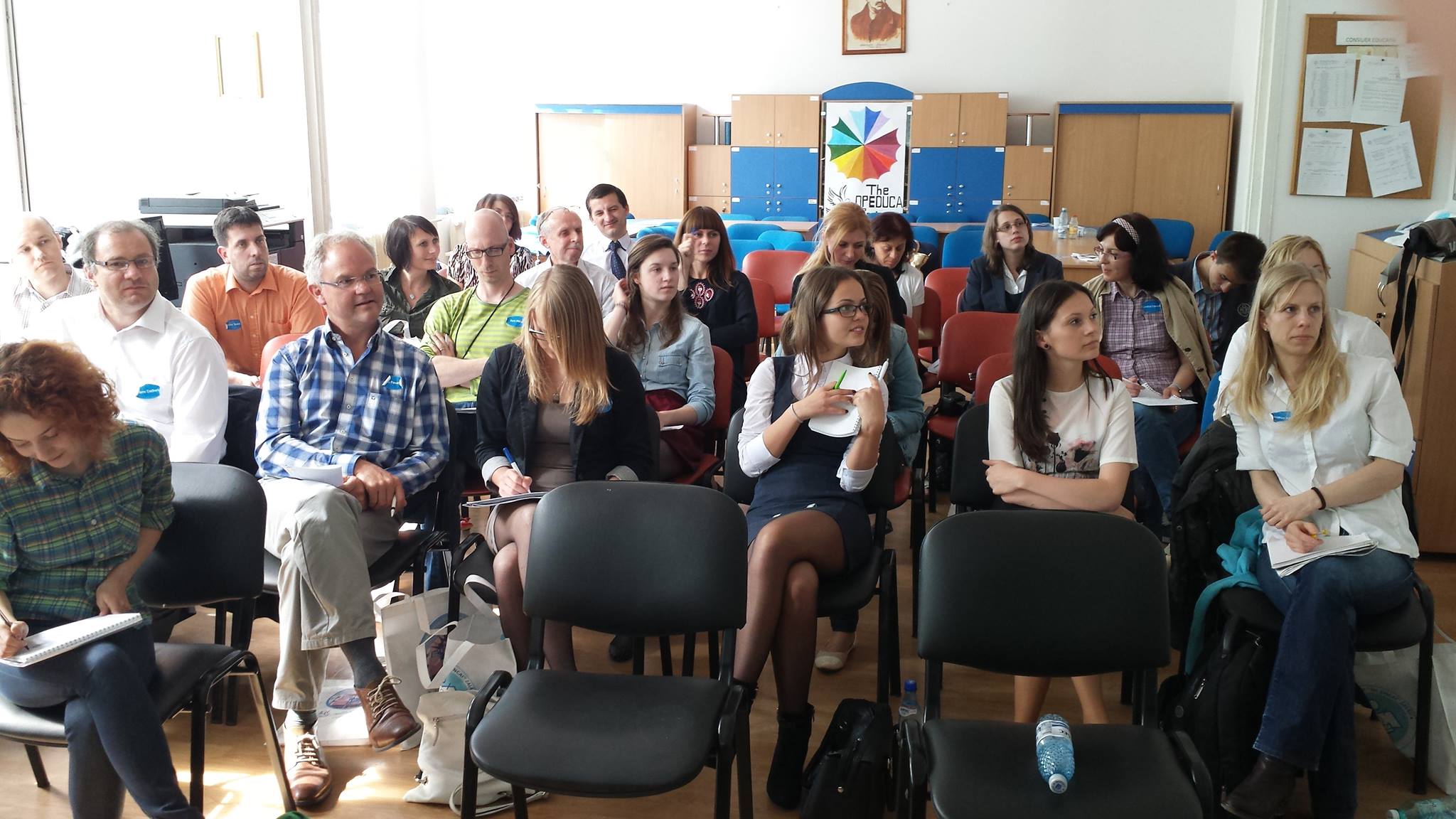
- III partnerių susitikimas surengtas Šiaulių Universitete 2015 m. kovo 17-18 d.
 |
 |
 |
 |
Šiaulių Didždvario gimnazijoje jau antrus metus yra įgyvendinamas tarptautinis „The Opeduca” projektas. Šių metų veiklos yra orientuotos į verslo galimybes, t.y. moksleiviai turi šansą išbandyti save versle - parduodant ne vien daiktus, bet ir savo žinias, gebėjimus. Projekte dalyvauja 2d klasė, bet siekis yra įtraukti visą mokyklą. Norima išeiti už klasės ribų siekiant pritraukti kuo daugiau moksleivių, tėvų, verslo atstovų, kurie galėtų prisidėti plėtojant verslo idėjas. Viena iš svarbiausių techninės pusės dalių - stengtis sukurti verslą neinvestuojant, o strategiškai apgalvojant kiekvieną žingsnį. Tai yra įgyvendinama buriant žmones, kurie savo žiniomis gali prisidėti skatinant verslumą jaunimo tarpe.
Vienas sėkmingiausių tokio bendradarbiavimo pavyzdžių Šiaulių Didždvario gimnazijoje yra „Molio laboratorija“ - tai nepaprastai smagi, įdomi, pažintinė programa vaikams, kurioje ne tik supažindinama su įdomiais chemijos ir fizikos reiškiniais, paaiškinamos tų reiškinių susidarymo priežastys, bet ir viskas kartu išbandoma.
Kaip teigia pagrindinis „Molio laboratorijos” chemikas moksleivis Mantas Jokubaitis: „Molio laboratorija skatina vaikų susidomėjimą gamtos mokslais, o tai labai svarbu šiuolaikinėje visuomenėje, kai jaunus žmones sunku sudominti fizikiniais, cheminiais, biologiniais procesais. Be to, pasirodymų metu rodomi ne tik akiai patrauklūs bandymai, bet ir suteikiama įvairios informacijos apie panašius procesus vykstančius ir pramonėje, ir kasdienėje buityje.” Mantas pasakojo, kad edukacinių užsiėmimų idėja kilo kartu su chemijos mokytoja Virginija Savickaite rodant bandymus pradinių klasių mokiniams, pamačius vaikų reakcijas ir didelį susidomėjimą įdomiąja chemija. Be abejo, prireikė daug darbo planuojant, parenkant tinkamus pagal vaikų amžių cheminius bandymus, reagentus; taip pat tinklalapio kūrimas, dizaino sprendimai, tačiau komanda yra patenkinta rezultatu. „Molio laboratorijos” dėka Mantas surado būdą parodyti vaikams, kad mokslas yra įdomus, kintantis, o svarbiausia suprantamas visiems.
„The Opeduca“ projektas apima 9 Europos šalių mokyklų ir universitetų tinklą išbandantį netradicinio ugdymo idėjų pritaikymą švietimo sistemoje. Šiuo projektu siekiama susieti bendrojo ugdymo mokyklose įgyjamas žinias ir gebėjimus su realiu gyvenimu, sudaryti sąlygas mokiniams išbandyti save kuriant ir realizuojant verslo idėjas.
Aura Lomeikaitė
Siauliai Didzdvaris gymnasium promotes actively "The OPEDUCA project" in Šiauliai region
By Liudvikas Jakavičius, Erasmus + volunteer
ŠIAULIAI. On May 5, 2015 Šiauliai Didždvaris gymnasium students participated in the European Youth Week event „Idea+“ which was held in Šiauliai Municipality, the place where the students and their teachers were actively promoting The Opeduca Project. The event had two stages: first a contest in which young people from Šiauliai have had the opportunity to present their ideas to contribute to the development of the city, and the second, a dialogue between the youth and politicians.
The winner of the first place in the contest and who got the opportunity to represent young people of Šiauliai in Vilnius was Liudas Nekrošius, a dancer and former student of Šiauliai Didždvaris gymnasium who has a dance studio in the city, whose ideas of the dances involve not only young people but also older or disabled people.
During the event Šiauliai Didždvaris gymnasium students with their teacher Julija Muningienė spoke about the "Business class" and the "Molio laboratorija" projects that are part of The Opeduca Project. The participants expressed their views convincingly and developed common ideas on how to encourage young people to realize their goals in developing the business.
Summing up the debate, Domas Griškevičius wished the young people of Šiauliai city to be more courageous and not to be afraid to "knock on the closed door." He wished young people to be proactive and not to be afraid to give more ideas for the city.
But, what is the Opeduca project?
The OPEDUCA Project starts at the point where the vision and the building of alliances and development of policy, pass into practice of education. The OPEDUCA Concept is developed together with school management, teachers, scientists and companies in order to realize an integral school transformation and educational development. OPEDUCA represents a vision on learning, translated into concrete tools and activities that can be structurally implemented in educational practice. With Education for Sustainable Development as a guideline, the OPEDUCA Concept leads to quality improvement of education in several dimensions and in all subjects. The capacity of youngsters to transform their ideas into action and, by doing so, develop knowledge and skills (entrepreneurship, communication and giving presentations) is an integral part of the OPEDUCA approach. The word OPEDUCA is short for “Open Educational Area”, an area in which people and organizations are connected and come into action with each other in such a way that integral learning processes arise, connecting theory, practice and experience. The size of an OPEDUCA region depends on the concentration of schools, local government, companies and knowledge insitutions in that particular area. Source: http://www.rcerm.eu/RCE_Rhine_Meuse_global.html
But how did Šiauliai Didždvaris gymnasium community become part of The Opeduca Project? What are the benefits of becoming part of this programme? How is being the experience of Didždvaris gymnasium in this? To know more about it, we spoke with the coordinators of The Opeduca Project at Didždvaris (Sonata Dedūraitė and Julija Muningienė) and with one of the students that is participating on this (Erika Apinytė).
Sonata Dedūraitė:
How did you learn about the Opeduca project?
Rytis Vilkonis teacher of Šiauliai University presented to our school the idea of the project “Developing open educational regions for future-oriented learning and teaching anytime, anyplace, with anybody, through any device” (Opeduca) and invited us to be the partners in this project.
How was your first contact with the Opeduca project?
The first partner meeting was held in Graz (Austria) in the beginning of the project. The coordinators of the project from RCE Rhine-Meuse/United Nations University presented the main topic of the project and the schedule of the activities. We were impressed by Joseph Eussen the creator and coordinator of the project. He presented how we can make our students learning process easy and interesting. He changed our perception of the teaching and learning process.
When did you decide to participate in the Opeduca project with your students?
We decided the same minute when we heard the idea of the project. We have a lot of working methods in our education but the new experience is always interesting and useful for our
Julija Muningienė:
What are the benefits/advantages of this kind of projects for students and for teachers?
The most important thing for me was that I was free to plan whatever I want, there were no regulations HOW to do the project activities. On the one hand, this was an advantage, because I was able to try different crazy ideas, using the methods I like, avoiding standardized programs. During such projects you can create absolutely amazing and creative things. I want to emphasize that we speak a lot about creativity in Lithuania; however we still don’t have tools, real tools that would let us integrate creativity into educational system.
The most important thing right now is to have success during final exams, so you need to consider all academic programs, write a lot of tests, and constantly memorize everything. Most students feel constant stress, and basically we do not prepare them for real life, only to constantly memorize. Students have the unique opportunity to get to know the business people, their business ideas, share their ideas, gain more technical knowledge. The lessons, which are held in an unusual environment courage student’s creativity, unconventional teaching methods and forms helps to achieve good results.
How is your experience with your OPEDUCA Business class?
I am convinced that the success of the project depends largely on the teacher's willingness and interest. Project activities should be interesting for teachers. This business project led me to take an interest in various topics, such as social networking management, web page design creation and etc.
But I could not forget and that is what is interesting to me will not necessarily be interesting to children. Therefore, the teacher has to be very sensitive and adapt activities according to students' needs. The teacher has to be brave and not afraid to make mistakes, because through the mistakes comes incredible experience.
Also I can give an example of our experience. One was a lecture at the local café. The aim of this lecture was to demonstrate, that if you want you can turn any occupation into business even at school. Just it is important to develop your skills, know certain advertising tricks, be responsible and have a good team.
Lecture at the local café was a new experience for me as for educator; students had an unusual activity in the usual environment. I think that unusual environment is a challenge for educators, but at the same time it provides new possibilities for creativity integration into traditional teaching methods.
What can you say to every teacher who is still thinking about taking part in the Opeduca project with his/her students?
This project will make the teacher improve his knowledge, attitudes, perhaps even lead to the creation of your business. After all, teachers are very creative.
For students, it is new possibilities, new point of view, and maybe new decision. Pupils have to try unconventional methods of education, to feel the pleasure to create, evaluate the possibility of making a profit. I think for all sides, this project is very useful.
Erika Apinytė:
When did you heard about the Opeduca Business class?
I heard about it from my class teacher, when she offered me to participate in the project.
Why did you decide to participate in it?
I decided to participate in it because I got interested in the whole idea of the project. It lets you to choose whatever direction you want and try making a business out of it. It was a great opportunity for me to advertise my own business a little bit, and also, try a new one with my club.
So, before you heard about this project, did you already thought about creating your own business? Did you start your business before joining this project?
Before I've heard about this project, I already had my business for like half a year, but I also joined this project with another business idea. So I actually participated with two business ideas. One was my own idea, and the other one was set up with a group of girls.
About what was the other idea? Do you continue with both business now or just with the cupcakes?
The other idea is about handmade jewelry, specifically keychains and brooches. Sadly, I don't continue this business, as it just didn't get me, as cupcakes did.
Do you think that with this kind of enterprising you can replace the salary of a typical part-time student job?
In a way, but only as a part-time job to do in your free time. Especially, when I love doing it.
What do you want to study at university?
Hospitality and Culinary Arts.
After your studies, do you think that you will continue with What´s Up, Cupcake? If yes, how do you imagine What´s Up, Cupcake? in the future?
I think, it is too far away to plan it already. I imagine my future as some restaurants head chef, or something like that, but if I ever had a cupcakery, I imagine it as a cozy, small cafe, in which you could feel like at home − and also treat or self with a nice cupcake and a cup of coffee.
What can you say to us about your cupcakes?
My cupcakes are products of hard work, some sleepless nights and a cup of love. Everything just to make people smile.
What can you say to every student who is still thinking about creating his/her own business?
Don't be afraid to try even the craziest ideas − most likely they are wonderful and worth expanding! Make your dreams bigger than yourself, and do things you have never done to reach things you have never reached.
- IV partnerių susitikimas, projekto baigiamoji konferencija vyko 2015 m. lapkričio 25-27 d. (Kerkrade, Nyderlandai).
Lapkričio 25-27 d. Šiaulių Didždvario gimnazijos, Jovaro progimnazijos ir Šiaulių universiteto atstovai dalyvavo tarptautinėje konferencijoje Kerkradėje (Nyderlandai), skirtoje atvirų švietimo regionų, orientuotų į ateities mokymą ir mokymąsi , kūrimui. Tai jau ketvirtas ir baigiamasis Comenius tinklų projekto „The Opeduca“ partnerių, mokyklų ir universitetų iš 9 Europos šalių, susitikimas.
Netradicinių ugdymo idėjų pritaikymu švietimo sistemoje domėjosi ne tik projekte dalyvavusių šalių mokytojai ir mokiniai, aukščiausio įvertinimo Briuselyje sulaukę tarpiniai projekto rezultatai suintrigavo švietimo bendruomenes iš Indijos, Japonijos, Peru.
Dvejus mokslo metus projekto veiklose dalyvavę didždvariečiai išbandė „minčių žemėlapių“ metodiką, tyrinėjo, kėlė klausimus, konsultavosi su ekspertais, patys generavo verslo idėjas, susitiko su Šiaulių m. verslininkais, kūrė verslo planus ir bandė juos įgyvendinti. Su gimnazistais bendravo, apie savo veiklą pasakojo ir konsultavo buvę Didždvario gimnazijos mokiniai, mokinių tėvai; į projekto veiklas įtraukta Šiaulių m. bendruomenė, užsiėmimai vyko netradicinėse erdvėse.
Kaip sakė projekto Didždvario gimnazijoje vykdytoja Julija Muningienė: „Šio projekto veiklos mokiniams atvėrė naujas galimybes, naują požiūrį, o kai kuriems net padėjo priimti naujus sprendimus. Gimnazistai turėjo išbandyti netradicinius mokymo ir mokymosi metodus, pajusti kūrybos malonumą, įvertinti savo galimybes būti versliais. Manau šis projektas buvo naudingas abiems pusėms - ir mokytojams, ir mokiniams“.
Projekto „The Opeduca“ veiklomis siekta išbandyti netradicinį ugdymo metodą - mokinių gebėjimus bei žinias paversti įgūdžiais ir kompetencijomis, ugdyti jaunimo verslumą ir skatinti vadovautis mokymosi visą gyvenimą strategijos principais; susieti bendrojo ugdymo mokyklose įgyjamas žinias ir gebėjimus su realiu gyvenimu, sudaryti sąlygas mokiniams išbandyti save kuriant ir realizuojant verslo idėjas.
